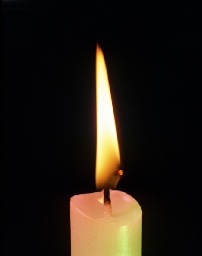shining a light
 The lampstand will be placed outside the inner curtain of the Most Holy Place in the Tabernacle. Aaron and his sons will keep the lamps burning in the Lord's presence day and night. This is a permanent law for the people of Israel, and it must be kept by future generations. (Exodus 27:21)
The lampstand will be placed outside the inner curtain of the Most Holy Place in the Tabernacle. Aaron and his sons will keep the lamps burning in the Lord's presence day and night. This is a permanent law for the people of Israel, and it must be kept by future generations. (Exodus 27:21)There was a baptism during this morning's service. When the vicar lit the Paschal candle he took a few minutes out to explain its significance: "It reminds us that we should not hide our light, because things that are done in darkness are usually not good." Sadly he didn't explain what he meant by "our light", but his comment about things done in darkness struck a chord. In the hours since, I have tried to think of things done under the cover of darkness that aren't ethically shady, with great difficulty.
Availibilty of light may not be the problem today that it was up until relatively recent centuries. Such breakthroughs as night-vision goggles and heat-sensors mean that less can be hidden, if you know where to look. We can have 24/7 lives because when the sun goes down, the lights come on. Although how beneficial this is to society as a whole is debatable. However, darkness does not have to be visual. Things that are hidden can include actions taken under the cover of excuses, or someone else's blame. They are things said and later denied. They are thoughts unexpressed, but which continue in the mind.
If we take the vicar's words at their most simple and conclude that everything done with the intention of it being hidden is wrong, the verse about not hiding a light under a bushel has an interesting flip-side. The light that is being hidden is not right precisely because it is being hidden. In hiding your light under a bushel, you have rendered that light less than what it should be. Like a candle locked into a bell-jar, the oxygen is consumed and the flame dies.
However, everything done in the light is not necessarily good. In fact, its flaws and shortcomings are more apparent than ever in the glare of publicity. But I don't believe that God wants us to shine our light to the world because it acts as a beacon of good. There is often an evangelical bent to the language of shining light, that we shine so that others will see and ultimately believe. I would argue that a community of people all being terribly and luminescently 'good' is more off-putting than welcoming. How many Christians begin their journey of faith hoping that they will either become good or learn how to be good and get lost along the way because they can't reconcile faith and deeds? Similarly, everything done in the light is not necessarily spoken into a microphone and shared on a daily basis with an audience of hundreds. It is living a faith that tries not to suppress facets of personality, social worry and cruel temptations under a bushel from God himself.
So if we are to shine our light for God to see, the reaction and opinion of the world becomes less significant. I heard a story about a family with huge financial problems, whose car had broken down and they had no means to fix it. Someone in their church donated them a car. It was left outside their house one morning, with no indication of who it was from. This gesture was more admirable because it was done under the cover of darkness. The light shone brighter and more clearly from its source - God's grace - because it wasn't embodied in the middle man.
Therefore whatever is done, whether in the open or in hiding, must have at its heart the knowledge that God wants to be a part of it. "Shining our light" is not about doing things openly, it is about being open with God and from that vantage point, shining with His grace.
Consider for a moment the lamp kept burning outside the Holy of Holies. It was (is) entirely symbolic and has that wonderful ambiguity of religious sacrament which invites analogy, metaphor and any manner of interpretation. It is kept burning, the responsibility is given not just to one man, but to his family and descendents. This light does not just shine, it has to shine. People tend it and keep it burning, and it is kept burning within the sight of God.
It is our responsibility to keep our lights shining. God may be the source of that light, and he may be present as it burns - and invariably flickers - but He is not the one that keeps it burning. We should not hide our light because how else would people know to remind us that it needs tending, how else can we remind ourselves? We should not hide our light because it will suffocate without the space to breathe. We should not hide our light because together we can shine brighter and more beautiful than we can alone.


0 Comments:
Post a Comment
<< Home